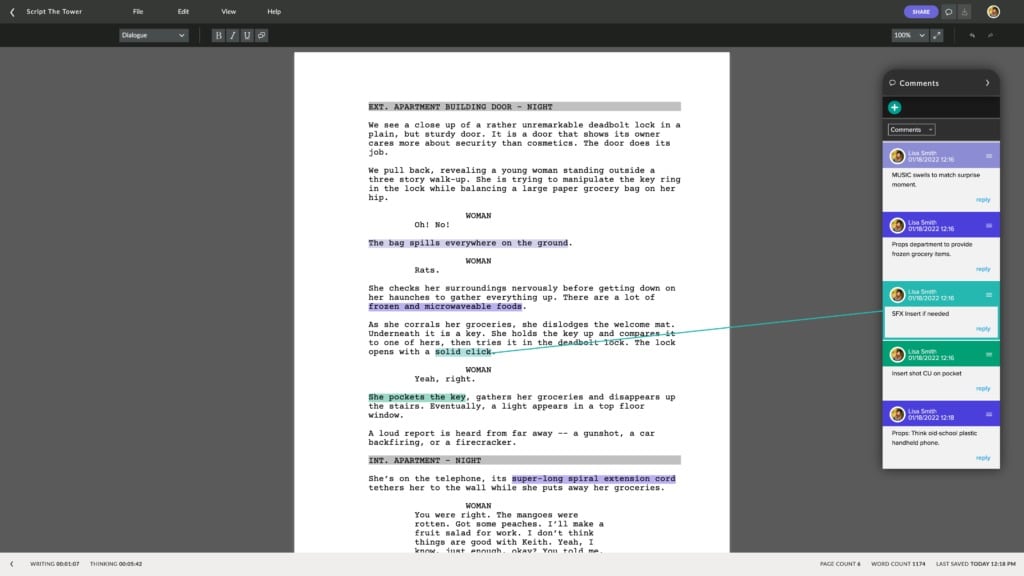If you are a screenwriter who already has one or more screenplays under your belt, you may be looking to get someone to represent you to help launch your career in the film industry. This is where screenwriting agents come in.
One of the most effective ways to get a screenwriting agent are finding agents who are accepting submissions and sending them powerful query letters. You can also attend screenwriting conferences and summits, submit your work to online pitch sites and screenwriting competitions, and attend film festivals.
But before expanding on these methods for getting a screenwriting agent, it’s important that we understand exactly what a screenwriter agent is.
A screenplay agent represents and promotes screenwriters and their work to studios, production companies and other industry professionals to help them secure opportunities and further their careers in the entertainment industry.

Whichever path you decide to take, the most important thing to do before approaching a screenplay agent is to ensure that your work is as strong as possible. In most cases, a screenwriting agent will only give you one shot to wow them; your job is to leave a lasting impression from the minute they open the first page of your script.
Start writing your script with the Celtx Script Writing Editor – Sign up Here (It’s Free!)

How to Find an Agent as a Screenwriter
You might be wondering how to find screenwriting agents. Here are some of the most effective avenues you can follow:
- Write an exceptional query letter that includes the title, logline, and short synopsis of your script. Keep the letter concise and personal. This article published by Screencraft provides extensive information on writing the perfect query letter for your scripts.
- Send your query letter out to screenwriting agents that are accepting submissions; nowadays all query letters are sent through email. IMDBPro is a great place to find a list of screenwriting agents you can contact. If you are just starting out in the business, focus on targeting smaller agents who are more likely to take the time to get to know you.
- Attend screenwriting conferences and summits where you will have a high chance of meeting and talking to agents in person. Toronto Screenwriting Conference, Willamette Writers Conference, Writer’s Digest Conference, and Story Expo are some of the most popular events that you can take advantage of and use to meet with screenwriting agents.
- Participating in film festivals is another great way to meet screenwriting agents in a casual and fun environment where agents will generally be more receptive to finding out about you and your work. Some great film festivals to attend are Austin Film Festival, Sundance Film Festival, South by Southwest (SXSW) Film Festival, Slamdance Film Festival, and Tribeca Film Festival.
- Submit your work to online pitch sites and screenwriting competitions. An effective way for your work to be recognized first hand is to submit it to online pitch sites (Black List, Stage 32, InkTip) or screenwriting competitions (Academy Nicholl Fellowship, Save the Cat! Screenplay Challenge, Screencraft, Austin Screenwriting Competition). Do your research before you make your submission to ensure that you are targeting the sites and competitions that are right for you, as the submission fees can add up quickly.
- Get a screenwriting manager first. In many instances, getting the attention of screenwriting agents can be tough. Since they represent many clients, most agents are very busy, and sparking their interest through a query letter may be challenging. Many screenwriters such as John McClain first got a screenwriting manager who later referred them to agents.

What Exactly Does an Agent Do for a Screenwriter?
A lot of new screenwriters think that once they get represented by a screenwriting agent, they can just relax and wait for the agent to pitch their scripts to big-shot producers and studio executives. This couldn’t be further from the truth!
Most screenwriting agents represent thirty to 60 clients and don’t have the time to address the unique needs of each writer that they are representing.
A screenwriting agent’s main responsibilities are to close a deal on a script sale and to handle the legal matters in relation to the sale. They are not required to set up general meetings for screenwriters or to shop your scripts around. Generally, an agent will not guide you on your screenwriting career or offer you feedback on your written work.
How Much Does a Screenwriting Agent Cost?
Screenwriters are not required to pay any upfront or monthly fees to their agents. Screenwriting agents only work on a commission basis. They will generally take a 10% cut of any script sale you make, only after the deal has been secured.
Be wary of ‘screenwriting agents’ that request an upfront fee or try to sell you services in exchange for promises of fame and multi-million dollar deals. Anyone who asks you to make a payment without negotiating a deal for you first is almost certainly a scam artist; a reputable screenwriting agent only gets paid when you do.
You can find a list of legitimate agencies on the Writers Guild of America’s franchised agency list.
Should a Screenwriter Even Get an Agent?
If you love writing screenplays and have dreams of making it big in the entertainment industry, you may assume that getting the right screenwriting agent will make that dream come true. Unfortunately, the reality is quite different; getting a screenwriting agent doesn’t necessarily guarantee direct success as a screenwriter.
We already mentioned that each screenwriting agent generally represents 30 to 60 clients; so, as the client of a reputable agent, you are a small fish in a big pond where all the other fish are also trying to get what you want while fighting for the attention of their agent.

If you are a screenwriter who is new to the business, you may need mentoring and guidance that a screenwriting agent will not be able to provide you. In most cases, the agent will wait for you to bring them a deal that they can seal, meaning you will have to have some knowledge of the industry and business skills of your own.
Most starting screenwriters prefer to get a screenwriting manager first as managers represent fewer clients and have more time on their hands to help guide and mentor their clients.
Alternatively, some screenwriters who have been in the business for some time have opted out of having a screenwriting agent altogether and prefer to handle all business matters themselves. Screenwriter Joel Eisenberg speaks about how he went from being represented by major agencies such as CAA and Gersh to being his own agent.
Conclusion
Having a screenwriting agent can be very helpful in getting your foot in the door if you want to make it in the entertainment industry.
You can pursue many different paths to getting the agent that is right for you; however, it is important to remember that whether you have a screenwriting agent or not, you still have to do your homework and learn as much as you can about the film industry and continue to network with professionals that can help launch your career.


